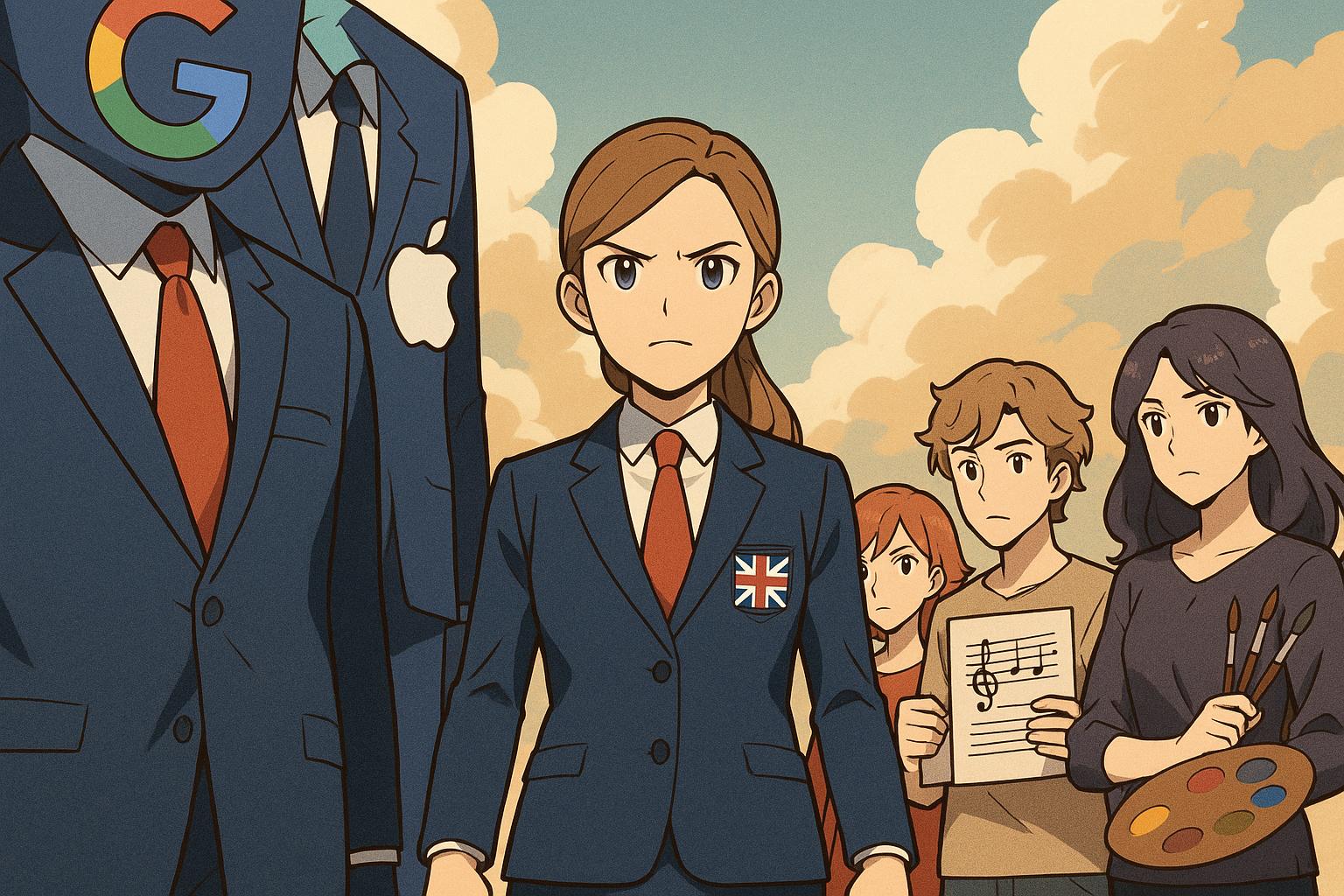The relationship between the UK government and big tech is increasingly fraught, as highlighted by former Google CEO Eric Schmidt’s recent comments at an investment summit. Schmidt noted that the UK offers “so many ways that people can say no,” revealing a major obstacle to attracting investment. However, a critical examination of the current Labour government reveals a troubling trend: an uncritical alignment with large tech firms that threatens to marginalize smaller players and vital sectors like the creative industries.
The dominant role of US tech giants such as Google, Amazon, and Meta in the UK economy is undeniable, with their combined market valuations in the trillions of pounds offering these corporations disproportionate access to policymakers. Inside sources from the tech sector have indicated that inflated job creation claims allow these giants to navigate Whitehall's corridors with ease, enabling them to exert significant influence over government decisions.
In light of this reality, Peter Kyle, the Secretary of State for Science, Innovation, and Technology, has ramped up his engagement efforts with tech companies, reportedly increasing communication frequency by 70% compared to his predecessor. While he may consider this a positive step, it raises serious concerns among critics, including Tim Flagg, CEO of UKAI, who warns that the voices of smaller UK tech firms are being drowned out. Flagg asserts that the government’s ambitions for growth would be better served by acknowledging and integrating a wider range of business perspectives.
The government's recent proposals concerning copyright law further exacerbate this troubling dynamic. With plans to allow AI firms to exploit copyright-protected works without prior permission through an "opt-out" mechanism, many creators feel that their work is at severe risk. High-profile figures like Paul McCartney and Dua Lipa have decried this as a pathway to "mass theft" of creative works, culminating in a collective outcry from over 400 artists demanding enhanced copyright protections.
This ongoing copyright debate symbolises a broader challenge for the Labour government as it tries to juggle the interests of an expanding tech sector with those of the creative industries—both crucial for a thriving UK economy. Critics warn that the current approach not only jeopardizes the invaluable creative sector but also undermines ambitions to position the UK as a front-runner in AI and innovation. Diluting protections is not a viable strategy if the government aims to foster global competitiveness in these fields.
Additionally, while the government’s digital services tax aimed at big tech firms remains intact despite a recent trade deal with the United States, it points to the intricate balancing act required in both domestic and international arenas. Critics argue that such fiscal measures are essential to ensure tech giants contribute equitably to the UK economy, although they have provoked tensions with American corporations.
Broader reform efforts have emerged in other areas, such as criminal justice. Justice Secretary Shabana Mahmood advocates for integrating advanced technologies to monitor offenders as a means to alleviate prison overcrowding. Her vision for a "prison outside prison" includes AI surveillance entwined with rehabilitation plans, ostensibly part of Labour's tech-forward governance approach. Yet, like the copyright dialogue, this initiative necessitates careful management to avoid the pitfalls encountered in previous technology projects.
As the Labour government navigates its identity and economic strategy within a swiftly progressing digital landscape, its ongoing engagements with big tech will undoubtedly remain a central battleground. The challenge will be to harness technological advancements without compromising the varied landscape of UK industries that depend on strong protections and fair competition.
In discussions regarding its future roadmap, Keir Starmer has emphasised that growth must be at the forefront of policy-making. Nevertheless, balancing this growth-centric agenda with the protection of domestic interests—especially in the creative sector—will be a daunting task for an administration grappling with the intricacies of a transforming technological and economic environment. The question remains whether the Labour government can rise to this occasion without abandoning the foundational pillars of competition and fairness that have historically bolstered the UK economy.
Source: Noah Wire Services
